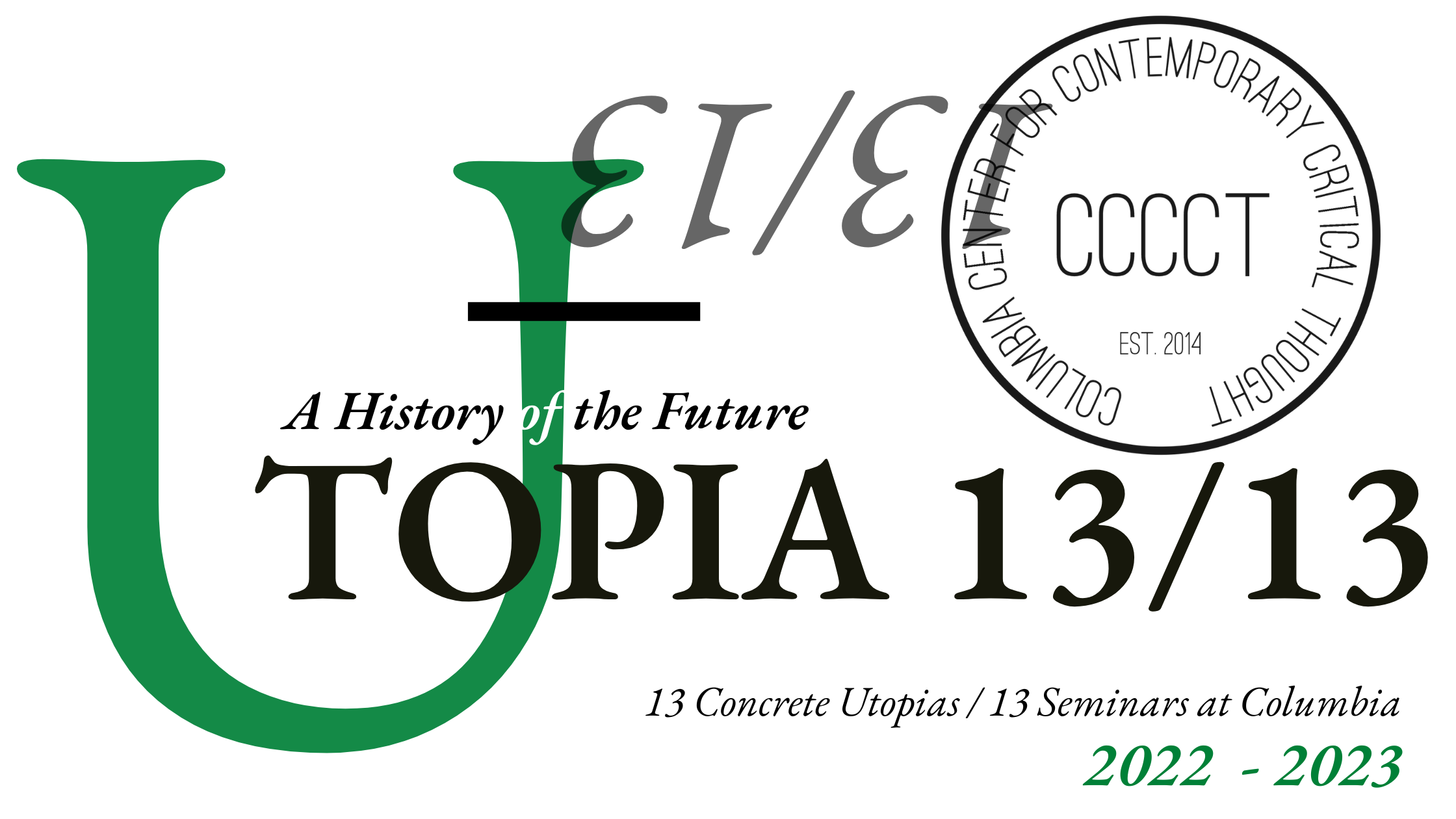(We will be adding subtitles to the video!)
Seyla Benhabib, Robert Gooding-Williams, Karuna Mantena, Kendall Thomas, and Bernard E. Harcourt
read and discuss
Critique, Norm, and Utopia, “Utopia and Dystopia in Our Times,” and “Cosmopolitanism Reconsidered” by Seyla Benhabib
Wednesday, April 12, 2023
Jerome Greene Annex, Columbia University
Following the seminar, Bernard E. Harcourt edited his remarks into the essay “‘To Burst Open the Possibilities of the Present’: Seyla Benhabib and Utopia.” Read on SSRN here.
With Herbert Marcuse pronouncing the “End of Utopia” in 1967 and the passing of the first generation of the Frankfurt School, the concept of utopia was eclipsed, at least momentarily, within the critical theory tradition. Jürgen Habermas did not engage the concept in his theory of communicative ethics, and there is practically no mention of utopia in his two-volume treatise, The Theory of Communicative Action (1981). As Seyla Benhabib observed, “Habermas’ theory marked a shift from utopian to communicative reason in critical theory.” Axel Honneth as well did not mention the concept of utopia, or even use the word itself, in his first book, The Critique of Power (1985). The concept of utopia went dormant.
It was not until the publication in 1986 of Seyla Benhabib’s landmark contribution to critical theory, Critique, Norm, Utopia: A Study of the Foundations of Critical Theory, that the concept of utopia resurfaced and regained footing in critical theory. The very title of her work restituted utopia to its place as a key concept of critical theory. A central argument of the book was, in her own words, “the need to recover part of the utopian legacy of early critical theory.” In her book, Seyla Benhabib forged a new path for critical theory that incorporated a cautious embrace of utopia from the earlier Frankfurt School, chastened by the practices of new social movements.
Over the course of a rich and ongoing intellectual journey since then, Seyla Benhabib has crafted her original vision of a “communicative utopia” into a far more concrete utopia, what she has called a “utopia of cosmopolitanism,” that has continued to evolve into, more recently, the concept of “cosmopolitanism from below”: an ideal of equal human dignity and respect for all humans, conjoined with equal respect and generosity toward their cultural, religious, gender, and ethnic differences, that finds its generative source from local and transnational grassroots movements seeking to reinvent political community.
In this seminar, we explore and discuss Benhabib’s utopian vision of “cosmopolitanism from below” with three brilliant critical thinkers, Robert Gooding-Williams, Karuna Mantena, and Kendall Thomas. I could not think of more stellar critical interlocutors for this conversation.
Welcome to Utopia 12/13!
[To read the full post, click here. © Bernard E. Harcourt]

